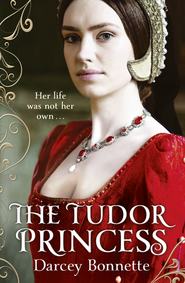По всем вопросам обращайтесь на: info@litportal.ru
(©) 2003-2025.
✖
Betrayal in the Tudor Court
Настройки чтения
Размер шрифта
Высота строк
Поля
Because Hal was the only child of the previous Earl of Sumerton it was his hope to fill the house with children of his own. That there were only two and a succession of miscarriages could not be helped. It was the will of God, he supposed, and he cherished his blessings. Brey was a wonderful child, sweet and bonny. And Mirabella … well, he was certain Mirabella would come into her own when softened by marriage and children. It was his hope that she would abandon her fantasy of becoming a nun. Though he would never deter her, it was not the life he had dreamed of for her.
Dreams … Nothing had gone as expected. In that his life was a constant illustration.
He sat now, thinking of this life as he shook the dice in clammy hands, surrounded by other men who wondered after their own lives, all of them convening to stave off their own terrible loneliness for one night. They would listen to the rattle of the dice, the melody of their chuckling, the bawdy jokes.
And they would pretend to be happy.
Thus Hal would get through.
Father Alec was witnessing a change in the Pierce household. Though it had been lively with a superficial sort of energy, he could not say his patrons were happy people. Yet when Lady Cecily came … He was under no illusions. The little baroness worked no miracles. The Pierces were still imbued with their own respective vices. Yet she infused in them a tranquility that he had not seen before. Her innocence, her trusting nature, her resilient cheer endeared her to all she encountered. Brey had a playmate, a companion, an outlet for his restlessness. Mirabella had an affable girl-child to treat as a sister and pupil, someone with whom she could tout her knowledge, someone she could nurture and lead toward her perception of Right. Lady Grace adored the girl and spent entire afternoons absorbing her serenity; she was a buffer to the antagonism experienced with her own daughter. And Lord Hal was fond of her as well; she was his hope for the future. It was from her womb that would descend all future Pierces.
She was of no exceptional talent; she was the type who mastered all she attempted with competence. If she possessed any gift worthy of note it was in her ability to manage people. Though she was playful, she displayed no signs of being a coquette; she would not manipulate her way through life as would a woman of the court. No, it was her sweetness that won hearts. Her sweetness, her sincerity, her acquiescence, her comforting presence.
Cecily was that rarest of things. A soul of complete integrity.
Father Alec drank her in as well. She was as a daughter to him. Perhaps it was because the other children had living parents that inclined Father Alec to believe they needed him less. Perhaps it was that Cecily shared his acute awareness of loss. Or perhaps it was that she was so uncomplicated. So genuine. Whatever it was, Father Alec found that with her he could be as close to a true father as he would ever get.
Of course it was not productive to think like that.
Father Alec did not regret the choice he had made. What other alternative was there at the time? The priesthood made sense. He was the second son of a Welsh country squire. As such, his fate lay with the Church. He did not resent this. He needed an education and the only ones of his class with access to an education of any true merit were priests. Chastity seemed a small enough sacrifice for the enrichment of his mind and soul.
He found other ways to relate to his fellow man and being a tutor was one of them. It gave him the opportunity to experience a little of what he had chosen to forgo. He lived with the Pierces; through them he witnessed the pitfalls and triumphs of a family. He could not deny that he was still on the outside, a bystander living vicariously through others. The emptiness of it all enshrouded him and more often than not he felt like a fraud, a man dressed as a priest for a masque.
Then Cecily came and with her a new sense of fulfillment, a new sense of connection.
He cursed himself. He should not feel that need. He should be resigned to his lot, the lot that he chose. Yet what harm was there in pretending? Was he not called Father for a reason? He chose to be as loving as a father to God’s people, to guide them, to nurture them. Surely God could not fault him for that.
So he pretended. Cecily called him Father and he revelled in the temporary fantasy that he was a family man, that he had a daughter.
That she called him Father not because he was a priest.
3 (#ulink_7bc7d278-561f-51b0-8c6a-50367ebfc1b5)
Winter shed its abundant white cloak in favour of the dewy green gown of spring. Easter had come and gone, relieving everyone at Sumerton of their Lenten deprivations. Now was a time to celebrate the Resurrection, to savour the hope life brought as it renewed itself in all its forms, the flowers pushing their bonny heads through the moist, fertile earth, the trees budding and blooming, the lambs and fawns struggling on their wobbly legs, the pups opening their eyes to the warmth of the sun for the first time.
The world was waking up.
Cecily was, too. She had grown to love the Pierces in the year she had spent with them, and though she longed for her parents, she realised she longed for them, less because of who they were than what they were. They were her parents. It was her duty to love them. She did not know them as people at all. They had never interacted with her the way the Pierces did. To be fair, Cecily had been too young to interact with and was left to the nurse for the most part. Most of her memories were of Mistress Fitzgerald rather than her mother, who was trailing after Cecily’s father, who was trailing after the court. Cecily could not blame them for that; that was their noble responsibility.
She prayed for her parents’ souls. The pain and guilt began to subside. She cherished their miniatures, keeping them on her bedside table that she might always be close enough to consult their likenesses should nostalgia call. As time passed, it called less and less.
Meantime the Pierces served as her distractions. They were a strange group; she loved them. She feared them. Their pain was tangible to one as sensitive as Cecily. She knew it, she felt it, even as she could not identify it. It shone out of Lord Hal’s wistful blue eyes, it rang like a mourning bell in Lady Grace’s soft voice, and was illustrated in Brey’s bewildered expression. In Mirabella it was disguised by an iron will and uncompromising conviction that Cecily did not bother to resist. It was far easier to acquiesce where she was concerned, and Cecily found Mirabella’s rare smiles worth yielding to. Besides, Mirabella was at odds with Lady Grace enough as it was; she did not need Cecily to add to the melee. If Cecily disagreed with her on matters of principle and anything in between she kept it to herself.
Finally there was Father Alec, who wore a mantle of melancholy of his own. He masked it with a kind smile, but it was there, deafening in its tortured silence. Cecily could not hope to reach it, to nurse it as was her inclination with anyone suffering.
She longed to heal them all. They had come together, all broken things, it seemed. She did not know why; perhaps she did not need to know. What mattered was that she was there and, in whatever way she could, she would try to bring joy to these people who were to be her life.
She did not yet possess the ability to comfort with words. So she comforted with actions, leaving bouquets of fresh spring flowers for Lady Grace and Mirabella, treasures from the outdoors to Brey, anything she could catch—frogs, mice, moles. For the men, Lord Hal and Father Alec, she left messages of hope in the small things—feathers, vibrant blue-green grass, shiny rocks, birds’ eggs. Anything that caught her eye.
She never told them; she was never one to tout herself. She knew she had given, after all, and sought no glory. She just left them. And hoped it cheered them as much as finding them cheered her.
Father Alec caught her one day. She had sneaked into his chambers and was leaving an interesting birds’ nest on his pillow. It was woven with such perfection, such delicate intricacy, that it rivalled the richest tapestry.
He cleared his throat upon entrance. “Lady Cecily, you know these are my private apartments.”
Cecily started, stiffening as she turned to face him. “I’m sorry, Father. It’s just that … well … I—”
“Did you look through my things?” he asked her.
Cecily shook her head. “No, sir. Of course not.”
His shoulders eased and he offered a smile. “I did not mean to frighten you. It’s just that I do not own much. What I do have, I treasure.”
“I understand,” Cecily said, and she did. She did not have much either. In truth she had more land and money and possessions than she could fathom, but they were inaccessible. What she had that she actually valued was very little and she would not want anyone tampering with it either.
“What were you doing in here then?” he asked her, his smile widening.
Cecily retrieved the birds’ nest, flushing as she handed it to him. “I saw it … I thought …” She could not speak. She did not want him to know.
“So it was you,” he breathed in his husky voice that Cecily had come to grow fond of. He sat upon his bed as he examined the nest. “I’ve been wondering for weeks now … all these little gifts. I have enjoyed each and every one,” he told her. “But why?”
Cecily bowed her head, embarrassed to be caught in the Act. She shifted from foot to foot, then slowly raised her eyes to the priest. “Because, Father, there is so much in this world to love.”
Father Alec slid from the bed to his knees, taking Cecily in his arms. “Darling girl,” he murmured against her hair. “Darling, darling girl, if there is any living proof of that it is in you. …”
Cecily wrapped her arms about his neck. No one hugged like he did. He engulfed her in his strong arms as would a great bear, holding her to his chest. She listened to his heartbeat. Strong, steady, and sure. A heartbeat she could count on.
There was no one in her world like Father Alec. With him she shared an inexplicable understanding that went beyond words. He always treated her with respect; he took her seriously. He answered all of her questions, even when Mirabella teased that they were childish and stupid. He was patient. He seemed to enjoy her company. He spent many an hour regaling her with tales of woodland creatures that talked, knights who rescued pretty ladies, or stories of the mischief he got into when he was a child.
He was the only person who seemed to completely belong to her. She did not know why. Yet somehow she knew it was reciprocated. That somehow, perhaps more than any little gifts she could offer him, it was her self that brought him the most peace.
What an uncanny privilege, she reflected as she looked into the kind hazel eyes, to know that she could be a comfort just by existing.
She did not leave him gifts after that day.
He did not need them.
“I cannot believe Mother and her May Day revels!” Mirabella fumed as the girls were dressed for the celebration Lady Grace had been planning since Lent. “I heard she is having bonfires after all! And she’s going to let the peasants dance around the poles just like pagans! There are going to be all kinds of wicked masques where the ladies will be half-naked!”
“Really?” Cecily asked, her breathless tone betraying her eagerness to participate in the pagan frolic. “Oh, Mirabella, but you must try to have a good time! You look so beautiful!”
Mirabella turned, gazing at herself in the shining silver glass. The red organza gown that her mother had made was indeed splendid, if one put great store in material things (which Mirabella did not). Its red velvet stomacher was embroidered with cloth of gold and seed pearls; the resplendent sleeves were in the French fashion that the witch Anne Boleyn was making popular, with cloth of gold undersleeves and kirtle to match. Mirabella’s black hair was brushed to a glossy sheen and flowed down her back in rippling waves under a red velvet French hood, embroidered with the same cloth of gold and seed pearls to match the stomacher. In all, a stunning ensemble.
She was beautiful.
She had not realised it before.
She put a slender hand to her face, taking in a slow breath. “Please send for Father Alec,” she ordered.








